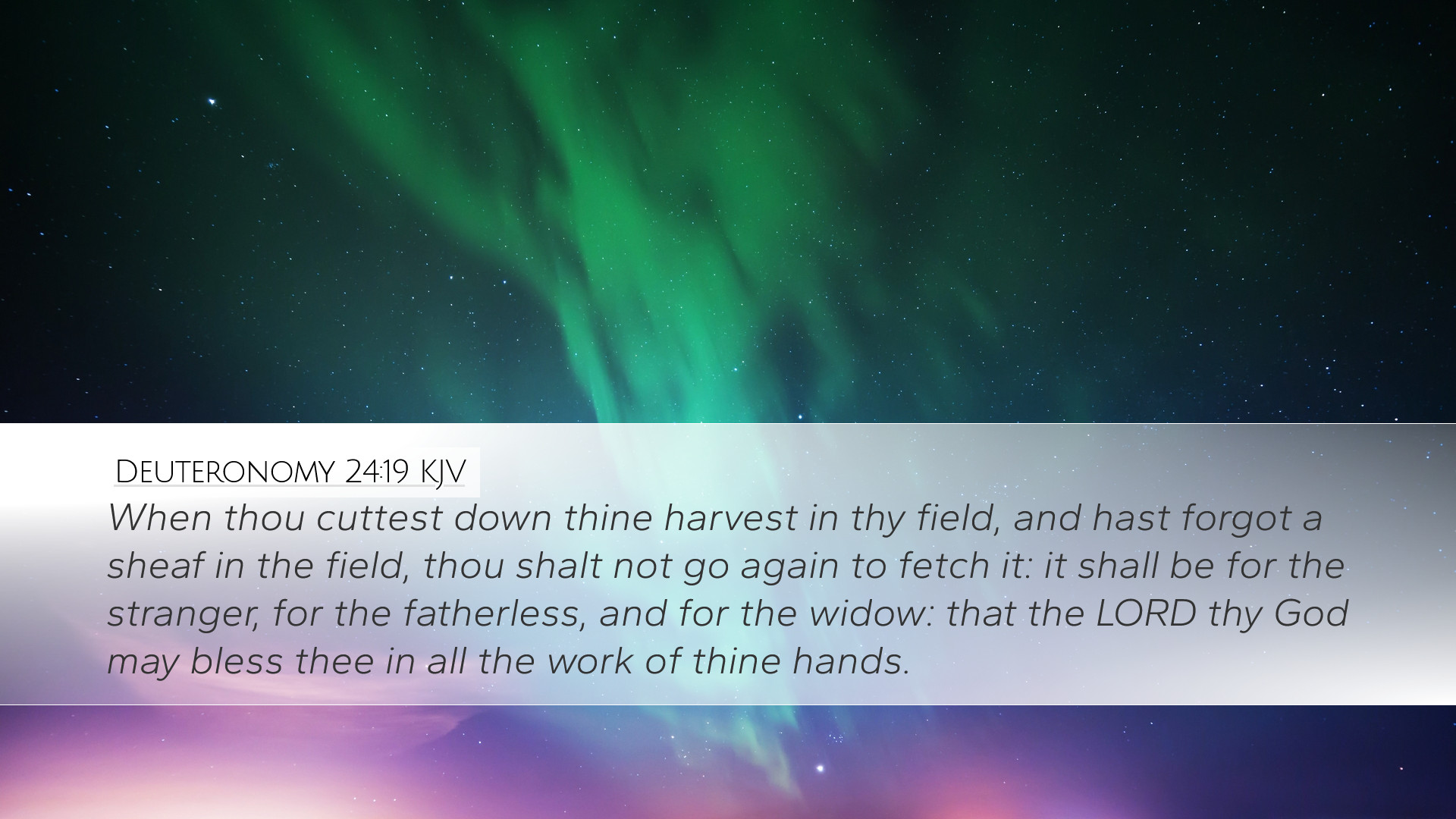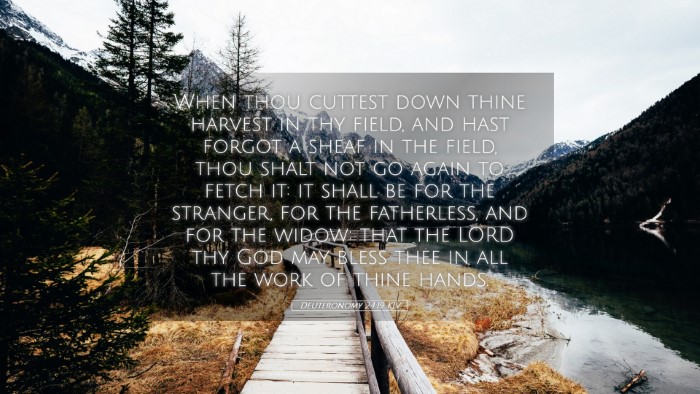Commentary on Deuteronomy 24:19
Verse: "When thou cuttest down thine harvest in thy field, and hast forgot a sheaf in the field, thou shalt not go again to fetch it: it shall be for the stranger, for the fatherless, and for the widow: that the LORD thy God may bless thee in all the work of thine hands." (Deuteronomy 24:19, KJV)
Introduction
This verse from Deuteronomy presents profound insights regarding the ethical treatment of the less fortunate, particularly in the context of agricultural practices in ancient Israel. Commentators such as Matthew Henry, Albert Barnes, and Adam Clarke offer rich theological and practical implications of this scripture, emphasizing themes of generosity, remembrance of the vulnerable, and divine blessing.
Contextual Analysis
Deuteronomy is fundamentally a series of speeches delivered by Moses to the Israelites as they prepared to enter the Promised Land. This specific verse is part of a section where various social justice laws are outlined. It highlights God's concern for the marginalized members of society, affirming that His blessings come upon those who act justly and with a heart of generosity.
The Law of Leaving Gleanings
In the broader context of agricultural laws, the command to leave the gleanings of the harvest serves multiple purposes:
- Charity: This law demonstrates a clear principle of social responsibility. The gleaning provision was a means through which the poor, strangers, orphans, and widows could find sustenance (Leviticus 19:9-10).
- Equity: It embodies the spirit of equality, ensuring that all members of society, regardless of their social status, have access to the basic necessities of life.
- Awareness: It serves as a reminder to landowners and harvesters to remain mindful of those in need, thereby cultivating a culture of compassion and care.
Theological Implications
The gleaning law underscores key theological themes:
- Divine Providence: As noted by Adam Clarke, this practice represents God's provisions for His people, including those who are vulnerable. It affirms that God cares for every individual.
- God’s Blessing: Matthew Henry highlights that the act of leaving gleanings is not merely a duty but a way to invoke God's blessing upon one’s labor. By caring for others, individuals align themselves with God’s covenant and mercy.
- Community Responsibility: Albert Barnes emphasizes that this command fosters an attitude of communal support and shared responsibility, a key element in the life of the Israelite community.
Practical Application
The principles of Deuteronomy 24:19 extend into contemporary contexts, encouraging modern believers to consider how they can live out this command in their own lives:
- Generous heart: Individuals are called to exhibit generosity, ensuring that their abundance does not lead to neglect of the needs in their community.
- Service to the marginalized: Churches and organizations should seek ways to support the less fortunate, creating programs that aid those who lack basic resources.
- Mindfulness in relationships: As one pursues success and harvests blessings, it is vital to remember those less fortunate and actively include them in the security of community life.
Conclusion
Deuteronomy 24:19 encapsulates a beautiful integration of law, mercy, and divine blessing. The insights from Matthew Henry, Albert Barnes, and Adam Clarke reveal layers of meaning that extend beyond the ancient context into the heart of Christian living today. In fostering a community that remembers the vulnerable and practices generosity, believers reflect the character of God and invite His blessings into their lives. As such, Deuteronomy 24:19 serves not only as a guideline for ethical conduct but also as a reminder of God’s unwavering care for all His creation.


